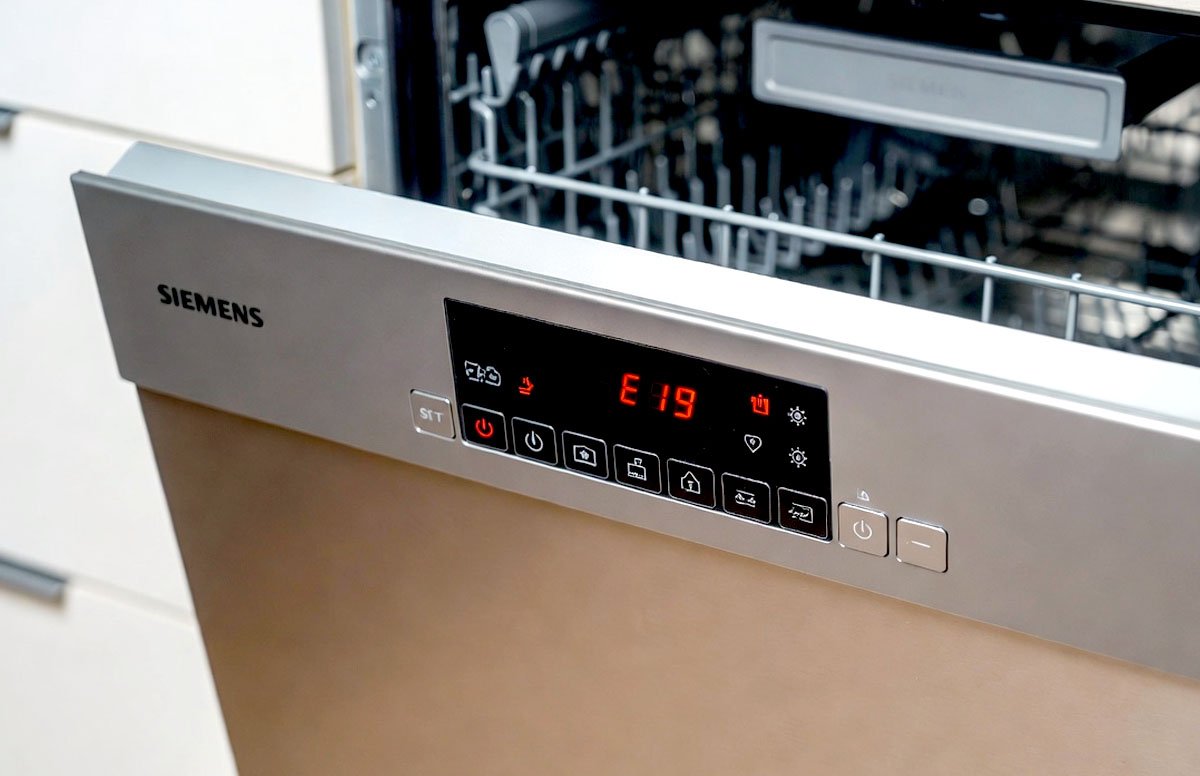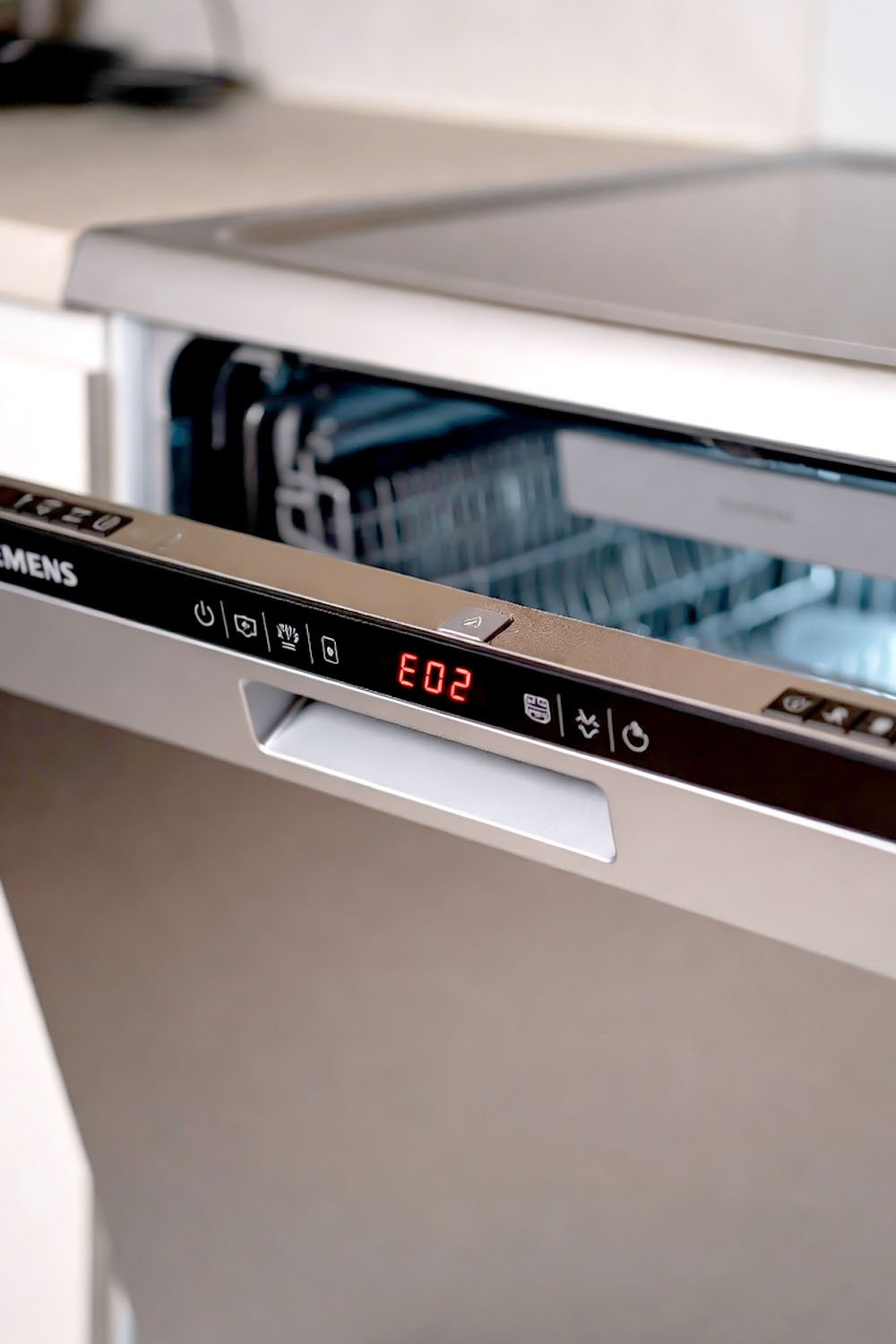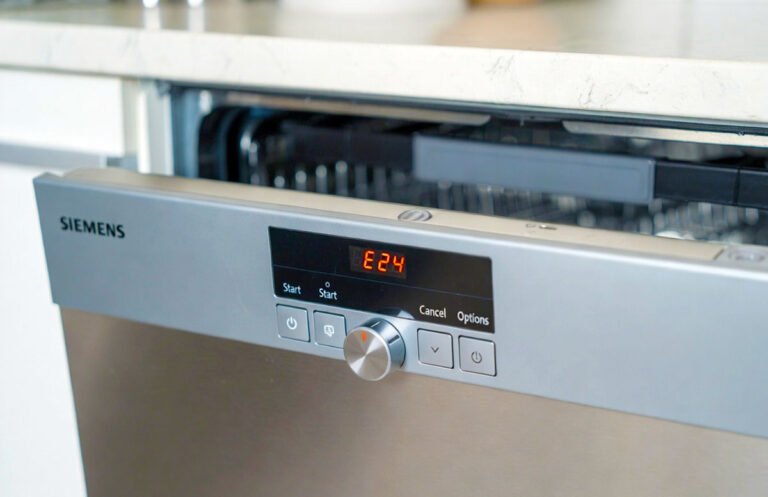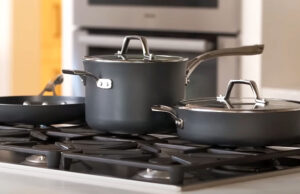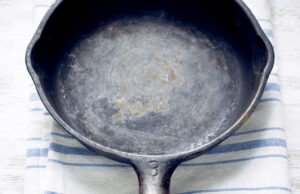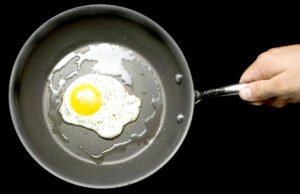As an Amazon Associate, I earn from qualifying purchases at no extra cost to you.
What Happens If You Don’t Put Salt in Dishwasher?
You may think your dishwasher is clean and working fine, but one day, your glasses come out foggy, your dishes look dull, and white spots are everywhere. You might start to wonder what went wrong. The real reason could be very simple — you forgot to put salt in your dishwasher. In this article, you will learn why dishwasher salt is so important, what can happen if you skip it, and how it can affect your dishes and machine.
Your Dishes Will Not Come Out Clean and Shiny
When you do not put salt in your dishwasher, your dishes start to look dirty, dull, and cloudy. You may notice that plates have spots or that glassware looks foggy. This is not because your dishwasher is broken. It is mostly because the hard water is not being softened.
Dishwasher salt helps to soften hard water. Hard water means it has more minerals like calcium and magnesium. These minerals stick to your dishes when the water dries. That is why your dishes look white or feel rough. Salt in the dishwasher helps to remove those minerals from the water.
The dishwasher has a part called the water softener. It needs salt to work. If there is no salt, the water softener cannot do its job. Without salt, the water stays hard. So when the dishwasher sprays water on your dishes, it is filled with minerals. As the dishes dry, those minerals stay behind. This is how those white spots and dull surfaces appear.
Over time, your dishes may not only look bad, but they may also feel different. Glass cups may feel rough. Plastic items may become stained. Even silverware may lose its shine. This can be very frustrating because you feel like your dishwasher is not doing its job.
Also, you may start using more dish soap or rinse aid to fix this problem, but it will not help much. These are not meant to soften water. Only dishwasher salt can do that job properly. Trying to fix this by using more detergent can actually make things worse. It can leave soap residue or even damage your dishes.
Here are a few more problems you may notice:
- Tea and coffee stains not getting cleaned.
- Dishes may still feel greasy.
- The smell of food may stay on some items.
- Cups and plates look older and worn out.
Many people feel disappointed when they see their dishes like this, and they may even blame the dishwasher. But in truth, it is a simple problem that comes from not using salt.
Sometimes, if you live in a place with very soft water, you may not need salt. But in most places, the water is hard. You can check this by asking your water provider or using a simple home test. If your water is hard and you don’t use salt, your dishwasher will not give good results.
To fix this, always check if the salt level is full. Your dishwasher usually has a light or alert to tell you. Refill the salt when it gets low. Make sure you use special dishwasher salt, not table salt.
- White spots on dishes
- Glassware looks cloudy
- Dishes still feel greasy
- Hard water stays untreated
- Water softener stops working
- Dishes lose shine and color
- Using more detergent won’t help
- Tea and coffee stains stay on
The Dishwasher Will Get Limescale Build-Up
When you do not add salt to your dishwasher, the machine itself begins to suffer. One of the biggest problems is limescale. Limescale is a chalky, white build-up that comes from minerals in hard water. These minerals stick to parts inside your dishwasher over time.
Inside your dishwasher, there are heating elements and water pipes. These parts heat and move water to clean your dishes. But if the water is hard and you are not using salt, minerals begin to stick to these parts. Slowly, layer by layer, limescale builds up.
The heating element becomes coated with limescale. This makes it harder for your dishwasher to heat the water. It needs to work longer and use more electricity. The machine becomes slower, weaker, and less energy-efficient. That means you may notice higher energy bills too.
Limescale also builds up in the water spray arms and pipes. The spray arms are supposed to spin and spray clean water on your dishes. But if limescale clogs the tiny holes, the water can’t come out properly. Your dishes don’t get cleaned well, and the machine has to work harder.
Over time, the entire dishwasher becomes less effective. Even if you use the best detergent, it won’t help if the machine is filled with limescale. You may even hear strange sounds from the machine or notice longer wash times.
Limescale also causes wear and tear inside the machine. Rubber seals, metal parts, and plastic parts can all get damaged. This can lead to leaks or breakdowns. If it goes on too long, the dishwasher may stop working completely.
Some people try to fix this by using vinegar or dishwasher cleaner. While this helps a little, it does not solve the real problem. The best way to stop limescale is to use dishwasher salt regularly. Salt protects your machine and keeps it working well for many years.
Ignoring this problem can cost you more money. You may need to repair or replace parts. In the worst case, you might need a new dishwasher. All this just because you skipped using dishwasher salt.
- Limescale forms on heating parts
- Dishwasher becomes slow and loud
- Pipes and spray arms get blocked
- Hot water takes longer to heat
- Machine uses more electricity
- Cleaning performance drops
- Risk of leaks and damage
- Expensive repairs or replacement needed
Your Dishwasher May Smell Bad
Another big problem when you don’t use dishwasher salt is that your dishwasher may start to smell. At first, the smell might be small, but over time it becomes strong and unpleasant. This is because of trapped food bits, soap, and minerals from hard water.
When hard water is not softened, minerals build up in the machine. They mix with food waste and soap. This mix sticks to parts inside your dishwasher, like filters, pipes, and corners. Over time, it turns into a smelly mess.
You may start to notice the smell when you open the dishwasher after a wash. It may smell musty or even like rotten eggs. This is not only uncomfortable, but it also means bacteria and mold could be growing inside.
Also, the bad smell can transfer to your dishes. Your plates may come out smelling strange, and your glasses may smell like metal or old food. This makes it hard to enjoy clean dishes. It feels like your dishwasher is doing the opposite of what it should do.
Some people try to fix the smell by using vinegar or baking soda. These can help for a short time, but they do not solve the real issue. The root problem is still there — hard water that is not being treated with salt.
Dishwasher salt helps the machine rinse properly. It prevents build-up of minerals and food bits. It also helps water flow better, so everything gets washed and drained properly. When the machine stays clean inside, the smell goes away.
Cleaning the filter and doing regular maintenance helps too. But without using salt, these are just short fixes. Smells will keep coming back unless you deal with the hard water problem.
- Dishwasher smells musty or rotten
- Food waste and minerals mix together
- Bacteria and mold may grow inside
- Dishes may smell bad too
- Filters and corners get dirty faster
- Vinegar only gives short-term fix
- Dishwasher salt helps rinse better
- Clean machine means no smell
You May Have to Replace Your Dishwasher Sooner
Dishwashers are not cheap. They are a big part of your kitchen. But if you do not take care of them by using dishwasher salt, they can wear out much faster than they should.
When hard water runs through your machine without softening, every part inside works harder. The heating part has to heat harder, spray arms must force water through blocked holes, and the pump has to push water filled with minerals. This extra work leads to stress and damage inside the machine.
The small parts like seals, filters, hoses, and gaskets may get damaged first. They become weak and brittle because of limescale. After that, bigger parts like the pump or heating element may stop working. If the machine stops draining or heating water, it will no longer wash your dishes.
Once the damage is done, repairs can be costly. Sometimes, buying new parts is not enough, because the damage keeps coming back if the water is still hard. If this happens again and again, many people decide to replace the dishwasher.
This is a big waste, especially if your dishwasher is still new. All this can be avoided just by using dishwasher salt regularly. It protects your machine and helps it last for many years.
Buying dishwasher salt is much cheaper than buying a new dishwasher. Think of salt as insurance for your machine. It keeps everything working well and saves you money in the long run.
- Dishwasher works harder and wears out
- Heating and pump parts get damaged
- Rubber seals and gaskets become weak
- Repair costs become high
- Machine stops cleaning properly
- Replacing the machine becomes needed
- Salt is a cheap way to protect it
- Saves you money in the long run
Your Energy and Water Bills Can Go Up
You may not notice it right away, but when you do not use salt in your dishwasher, your energy and water bills can slowly go up. This happens because your dishwasher becomes less efficient over time.
When the inside of the machine has limescale, it takes longer to heat the water. The heating element has to work harder, which means it uses more electricity. Your wash cycles may also get longer or repeat because the dishes don’t get cleaned properly the first time.
Hard water also makes it harder to rinse off soap. So your machine may use extra rinse cycles. This means more water is used during each wash. If you run your dishwasher every day, this adds up very quickly.
You may even start running smaller loads more often just to try and get clean dishes. This wastes both water and energy. All these things make your bills go up slowly, and you may not even know the reason behind it.
By simply using dishwasher salt, you can stop all this from happening. Salt helps the machine clean dishes better in one go. It also helps water heat faster and spray better. This means fewer washes, shorter cycles, and lower bills.
- Heating part takes longer to warm up
- Machine uses more electricity
- Extra rinse cycles waste water
- Bills go up without knowing why
- You may wash dishes twice
- Smaller loads used more often
- Dishwasher becomes slow and wasteful
- Salt helps save water and power
You May Have to Use More Detergent and Rinse Aid
When your dishwasher does not have salt, it cannot clean hard water. As a result, your dishes come out dirty or spotty. Many people try to fix this by using more detergent or adding extra rinse aid. But this does not really solve the problem.
Using more detergent than needed does not remove hard water minerals. Instead, it creates more soap residue. This can make your dishes feel sticky or filmy. It can also clog parts inside the dishwasher over time.
Extra rinse aid can help remove some spots, but it also adds more chemicals to your dishes. If not rinsed properly, these chemicals stay on plates and glasses. Some people are sensitive to rinse aid and may feel sick after using dishes washed in too much of it.
Dishwasher salt is the real solution. It softens the water, so detergent and rinse aid can work better. When water is soft, you can use less soap and still get great results. This saves money, protects your dishes, and keeps your dishwasher clean.
- More soap does not fix hard water
- Extra detergent leaves sticky residue
- Rinse aid adds more chemicals
- Dishes may cause skin or taste issues
- Machine may get clogged with soap
- Dishwasher runs longer to clean
- Salt makes detergent work better
- You save money by using less soap
Quick Guide
| Problem Without Salt | What Happens | How Salt Helps |
|---|---|---|
| Dishes look spotty | Hard water minerals stay on dishes | Salt softens water |
| Limescale in machine | Heating and spray parts get damaged | Salt prevents mineral build-up |
| Dishwasher smells bad | Food and minerals rot inside | Salt improves rinse and cleaning |
| Machine breaks faster | Extra wear on parts | Salt protects all working parts |
| Higher bills | More energy and water used | Salt makes cleaning faster and better |
| More soap needed | Dishes still dirty with more detergent | Salt boosts soap and rinse aid power |
Final Thoughts
Skipping dishwasher salt may seem like a small thing, but it causes many problems. Your dishes won’t look or feel clean, and your machine can get damaged. Over time, this can cost you money in repairs or even a new dishwasher. The good news is that the fix is very easy — just add dishwasher salt regularly. It keeps your dishes shiny, your machine clean, and your bills low. Always make sure the salt level is full and use only special dishwasher salt, not regular salt.
Frequently Asked Questions (FAQs)
Is it safe to use the dishwasher without salt?
It is not harmful for one or two times, but if you keep using the dishwasher without salt for a long time, it is not safe for the machine or your dishes. Hard water will slowly build up minerals inside the dishwasher. This causes white spots, cloudy glasses, and bad smells. It also damages the heating parts and makes your machine work harder. That is why it is always better to keep dishwasher salt filled.
Can I use table salt instead of dishwasher salt?
No, you should not use table salt in your dishwasher. Table salt has small grains and may contain other ingredients like anti-caking agents. These can damage the inside of your dishwasher or clog the softener unit. Dishwasher salt is specially made for the job. It has big grains and no added chemicals. It dissolves slowly and works perfectly to soften the water. Always buy the correct dishwasher salt for your machine.
Do I need dishwasher salt if I live in a soft water area?
If your water is already very soft, your dishwasher may not need salt. Some places have soft water naturally. But many dishwashers still recommend adding salt even in soft water areas to help the water softener work properly. You can check your water type by asking your water company or using a test strip. If your water is hard or even slightly hard, you should use dishwasher salt to protect your machine and dishes.
Is it okay to ignore the salt warning light?
It is not a good idea to ignore the salt warning light. That light is there to help you. When it turns on, it means your machine’s water softener has no more salt. If you ignore it, your dishwasher will start using hard water. This can make your dishes look dirty and damage your machine. Always refill the salt as soon as you see the warning light.
Can I fix hard water spots with vinegar?
Vinegar can help clean hard water spots for a short time, but it does not fix the real problem. It may make your glasses look better, but it does not remove minerals from the water. Only dishwasher salt can do that by softening the water before the wash cycle begins. Vinegar can be used as a cleaner now and then, but do not use it as a replacement for dishwasher salt.
Do I need to refill salt after every wash?
No, you do not need to refill salt after every wash. Dishwasher salt usually lasts for many washes. How long it lasts depends on how often you use your machine and how hard your water is. Most dishwashers have a salt level light or indicator. Just check it once a week or every few days. Refill when the level gets low, but not after every single wash.
Is it bad to run the dishwasher every day?
Running your dishwasher every day is not bad, especially if you have many dishes. But if you run it daily without using dishwasher salt, that’s when problems start. The hard water damage adds up quickly, and your machine may break down sooner. So if you run your dishwasher often, it becomes even more important to use salt regularly to keep it working well.
Do I need salt if I use an all-in-one tablet?
All-in-one tablets may say they have salt in them, but they do not replace real dishwasher salt. The amount of salt in tablets is very small and may not be enough if your water is hard. They may help a little in soft water areas, but in most cases, you still need to add real dishwasher salt to the machine. This keeps the water softener working and protects your machine better.

